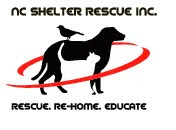This is why it's so important prior to screaming that animals are being killed in less than 72 hours in a North Carolina Shelter on Face book or another social media outlet SAVE THE EVIDENCE. Get a copy of the intake card from the Shelter ( It's Public Record in case you didn't know). If the Shelter Employee's posted a picture of the animal or any info of the animal on Face book, screen shot it all prior to alerting them that you are watching. You don't want all your evidence being removed or deleted prior to you collecting it all for evidence.
To help you further understand not only the issues we have in North Carolina Animal Shelters, you have to understand the law as it is written or should I say the loop holes it has that need to be closed.
In North Carolina to be a knowledgeable Animal Advocate, it is imperative that you understand the NC Animal Welfare Act and our North Carolina State Statues.








